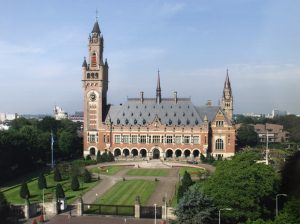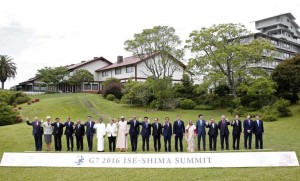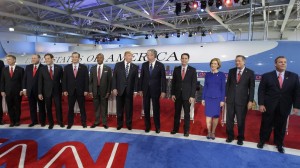dzu18g1ph7
Enhancing Global Order: Is It Not Possible With the Great Powers?
Take a Deep Breath – Not Yet the End of the Global Order

Gloom and despair have accompanied the Brexit vote, especially for those concerned about the wider Atlantic alliance.
Mr. Obama, after meeting with leaders of the European Union attending the Warsaw NATO Leaders’ Summit, tried to play down fears that Britain’s exit would weaken European resolve. He acknowledged that the “Brexit” vote had “led some to suggest that the entire edifice of European security and prosperity is crumbling. But he added, “Let me just say that as is often the case in moments of changes, that this hyperbole is misplaced.”
As Kathleen McNamara of Georgetown succinctly put it in her recent Foreign Affairs article, “the answer to the breathless question posed in the New York Times on Sunday—“Is the post-1945 order imposed on the world by the United States and its allies unraveling, too?”—is simple. No, it is not. And yet the emotions and cultural chasms brought to bear in the Brexit vote cannot, and should not, be ignored.
“Burning the International Order to the Ground”
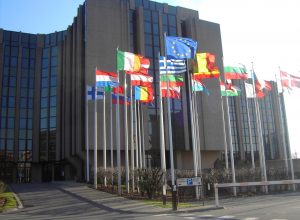
Image Credit: en.wikipedia.org
There is shock and incredulity following the victory of the ‘Leave’ vote in Britain. I will let my colleagues who follow closely the EU to pick up the threads of both this negotiation and the future of this supranational institution. There will be much analysis over this difficult exit and the reduction of the EU from 28 to 27, though it may well be that it will return to 28 if Scotland decides it unprepared to leave the EU.
But let’s turn to the implications of the British exit on larger global order questions. The vote to leave immediately brought to mind the phrase that adorns this post that my colleague at Brookings, Tom Wright used to describe Donald Trump’s foreign policy. The post from Brookings (June 3, 2016) was using Hilllary Clinton’s San Diego speech to examine Trump’s foreign policy ideas. As Tom concluded:
So he will double down. And as he does, he will reinforce every word of Clinton’s San Diego speech and further alienate those voters who may be skeptical of an activist foreign policy but do not want to run the experiment of deliberately burning the international order to the ground.
A ‘Quaint’ but Made-up US Grand Strategy

My colleagues John Mearsheimer and Stephen Walt have returned to offer a new and improved version of US foreign policy. In their recent piece “The Case for Offshore Balancing: A Superior US Grand Strategy” they offer both a critique of current foreign policy, which they see as some variant of liberal hegemony and provide, according them a clear and superior alternative – ‘offshore balancing’:
There is a better way. By pursuing a strategy of “offshore balancing,” Washington would forgo ambitious efforts to remake other societies and concentrate on what really matters: preserving U.S. dominance in the Western Hemisphere and countering potential hegemons in Europe, Northeast Asia, and the Persian Gulf. Instead of policing the world, the United States would encourage other countries to take the lead in checking rising powers, intervening itself only when necessary.
The ‘Season of Summits’ continues
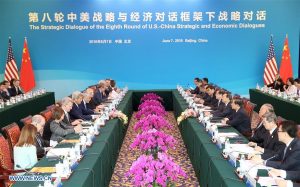 Well really no sooner had the G7 at Ise-Shima Summit (May 26th-27th) in Japan concluded, then our attention was redirected to the US-China 8th S&ED (Security and Economic Dialogue) that concluded in Beijing on June 7th.
Well really no sooner had the G7 at Ise-Shima Summit (May 26th-27th) in Japan concluded, then our attention was redirected to the US-China 8th S&ED (Security and Economic Dialogue) that concluded in Beijing on June 7th.
The annual meeting is a chance to take the temperature once again of US-China relations. The Summit, as the name implies is made up of two tracks – the Strategic Track led by the US Secretary of State, John Kerry and State Councilor Yang Jiechi and each is a special representative to their respective leader. Meanwhile the Economic Track was led by US Treasury Secretary Jacob Lew and Chinese Vice Premier Wang Yang.
Even a quick read of the two communiques reveals just how different the tracks are. The Strategic Dialogue took some 19 pages to report on its collective efforts, while the Economic Track took a mere 3.
It is clear that the US came at the economic discussions urging changes and reforms to Chinese economic behavior and bringing the complaints and difficulties that US businesses have, and continue to face, in China. From the media report, below from the the NYT, it is clear that there is growing frustration in the US business community over the array of regulations that inhibit US business interests in China:
James McGregor, Greater China chairman for communications consultancy APCO Worldwide, who attended a Tuesday event for executives with senior U.S. and Chinese officials, said executives were blunt in stressing how negative things were becoming for foreign companies in China.
Who Governs the Global Order
So the G7 met in Japan this past week. And the media did in fact pay some attention to it. But the attention was largely for the wrong reasons. This caucus/club was often in the past dismissed by those not invited to the party. Countries and experts alike referred to the G7 as the ‘Rich Man’s Club’. The emergence of the G20 – at the time of the global financial crisis – redirected attention to this Informal as opposed to the G7. There was criticism of course. Media, experts and representatives of those countries not included reflected on the lack of legitimacy, failing to be universal, self-identification, etc. But the G20 was never attacked for being a narrow interest as the G7 had been. The G20 was the first, and remains the most notable global summit platform of established and emerging powers. Indeed at the time of the G20’s creation, there was much discussion of the likely passing of the G7 summit. Obviously that didn’t happen.
Back Again: The Global Order in Our Sights
 It has been a long hiatus. Truth be told, I was planning to remain silent for an entire year. But I couldn’t resist coming back before then. As it turns out – just on the cusp of Memorial Day weekend for my American colleagues – and in the face of the announcement that Donald Trump had enough delegates to be nominated in Cleveland at the Republican Convention in July, I am back. The fact is too much is happening both in the world of global governance and also in the examination of global order ideas. So it’s time to end my silence.
It has been a long hiatus. Truth be told, I was planning to remain silent for an entire year. But I couldn’t resist coming back before then. As it turns out – just on the cusp of Memorial Day weekend for my American colleagues – and in the face of the announcement that Donald Trump had enough delegates to be nominated in Cleveland at the Republican Convention in July, I am back. The fact is too much is happening both in the world of global governance and also in the examination of global order ideas. So it’s time to end my silence.
Why Not Diplomacy
So it would appear that the Obama Administration has crossed the finish line on the US-Iran nuclear deal or as it called, the Joint Comprehensive Plan of Action (JCPOA). The period of Congressional approval/disapproval – the 60-day period of congressional review – ends today. With the vote of disapproval eliminated, the US-Iran deal is secured. Of course ‘US approval’ says nothing about implementation, verification and surveillance. That will come next.
The ‘Mechanics of Global Order’ – A Different Kind of World Ordering
I was reminded recently of the enormous influence of the nonagenarian Henry Kissinger. My colleague from Brazil, Oliver Stuenkel, author of the blog Post-Western World reviewed Henry Kissinger’s most recent book, World Order. His review of the 2014 book caused me to look back at my notes on this book and then to drag from my University library his 1994 book, Diplomacy. Obviously quite laconic when it came to titles – don’t forget On China – Kissinger has been the most detailed – and THE contemporary deep thinker – both as an academic and a diplomatic practitioner – when it comes to articulating the contemporary global order and its inner workings. Kissinger has been enormously influential since at least his A World Restored (Kissinger’s Ph.D. thesis originally) published in 1954. And of course, his diplomatic practice in the Nixon and Ford administrations remains central to US foreign policy behavior and critique. Today, he is still consulted by many in Washington for his views on US foreign policy – see his and George Shultz’s review of the Iran nuclear deal – and in particular US diplomacy toward China.

